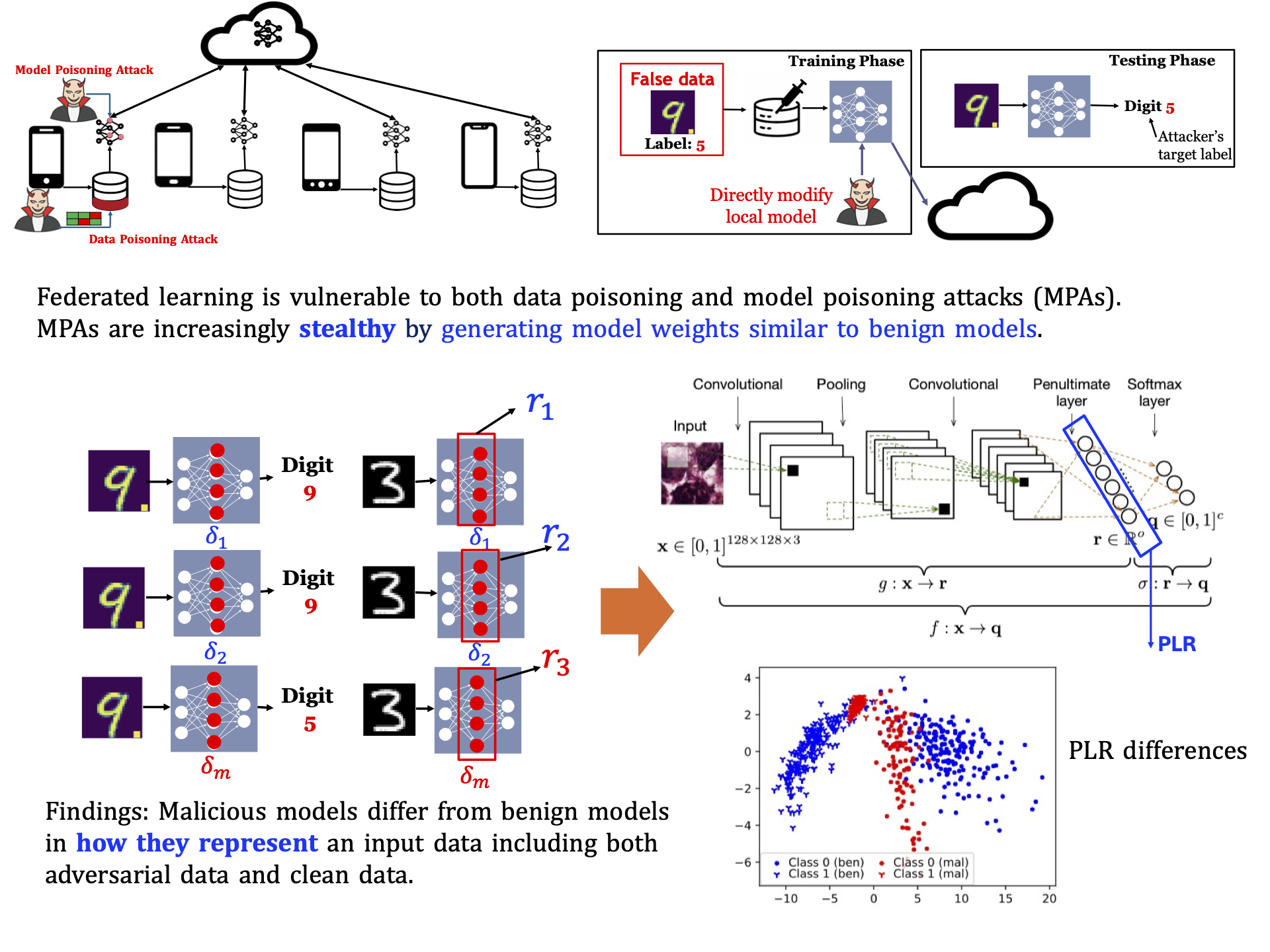Securing Federated Learning against Poisoning Attacks

Published in IEEE International Symposium on Dynamic Spectrum Access Networks (DySPAN), 2019
R. Zhang, N. Wang, N. zhang, Z. Yan, W. Lou and Y.T. Hou pdf
Published in IEEE International Conference on Computer Communications, 2021
N. Wang, Y. Chen, Y. Hu, W. Lou and Y.T. Hou pdf
Published in IEEE International Conference on Computer Communications, 2022
N. Wang, Y. Chen, Y. Hu, W. Lou and Y.T. Hou pdf
Published in 17th ACM ASIA Conference on Computer and Communications Security (ACM ASIACCS), 2022
N. Wang, Y. Xiao, Y. Chen, Y. Hu, W. Lou and Y.T. Hou pdf
Published in IEEE Conference on Communications and Network Security (CNS), 2022
Y. Hu, N. Wang, Y. Chen, W. Lou and Y.T. Hou pdf
Published in Annual Computer Security Applications Conference (ACSAC), 2022
N. Wang, Y. Xiao, Y. Chen, N. Zhang, W. Lou and Y.T. Hou pdf
Published in IEEE Transactions on Dependable and Secure Computing, 2023
N. Wang, Y. Chen, Y. Xiao, Y. Hu, W. Lou and Y.T. Hou pdf
Published in IEEE Military Communications Conference (MILCOM), 2023
C. Zhang, N. Wang, S. Shi, C. Du, W. Lou and Y.T. Hou pdf
Published in 28th European Conference on Artificial Intelligence, 2025
Z. Jiang, X. Lyu, S. Shi, Y. Xiao, Y. Chen, Y. Hou, W. Lou, N. Wang pdf
Published:
This talk presents FeCo, a machine-learning-based IDS for IoT networks. FeCo incorporates contrastive learning into FL framework to support distributed intrusion detection. FeCo obtains more representative feature vectors by contrastive learning. These feature vectors have higher discriminative power between normal and malicious traffic. This effectively enables FeCo to achieve better detection accuracy than other baselines. Through extensive evaluations on the NSL-KDD dataset, we demonstrate the high effectiveness of FeCo in both centralized and federated learning setting.
Published:
This talk presents a robust aggregation algorithm FLARE to protect FL against MPAs. It demonstrates that PLR vector has high potentials in differentiating malicious/poisonous models from the benign ones. FLARE effectively minimizes the impact of malicious/poisonous models on the final aggregation by assigning low trust scores to those with diverging PLRs.
Undergraduate course, University of South Florida, Department of Computer Science and Engineering, 2024
2024 Spring.
Graduate course, University of South Florida, Department of Computer Science and Engineering, 2024
This course is created by Dr. Wang. 2023 Fall, 2024 Fall